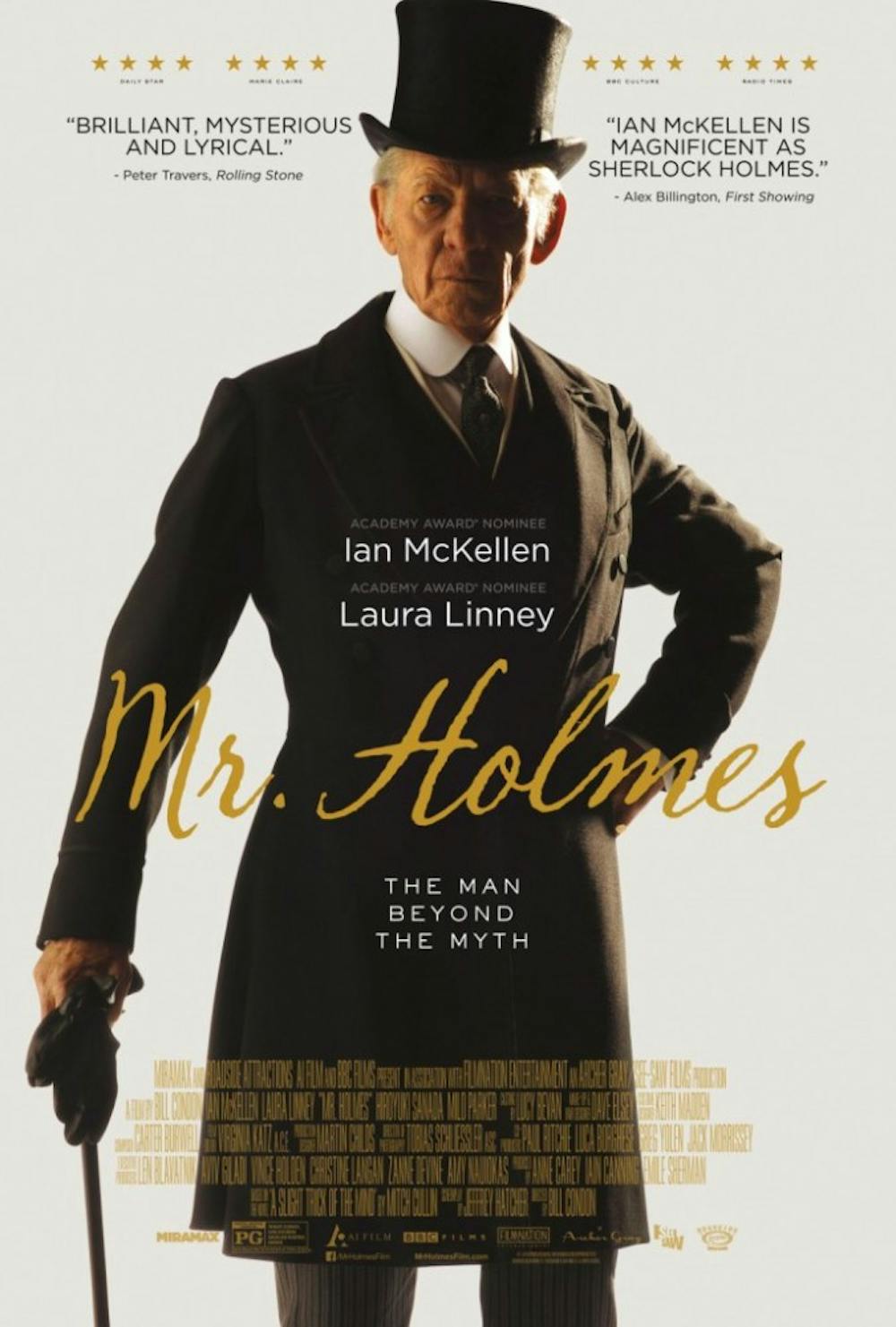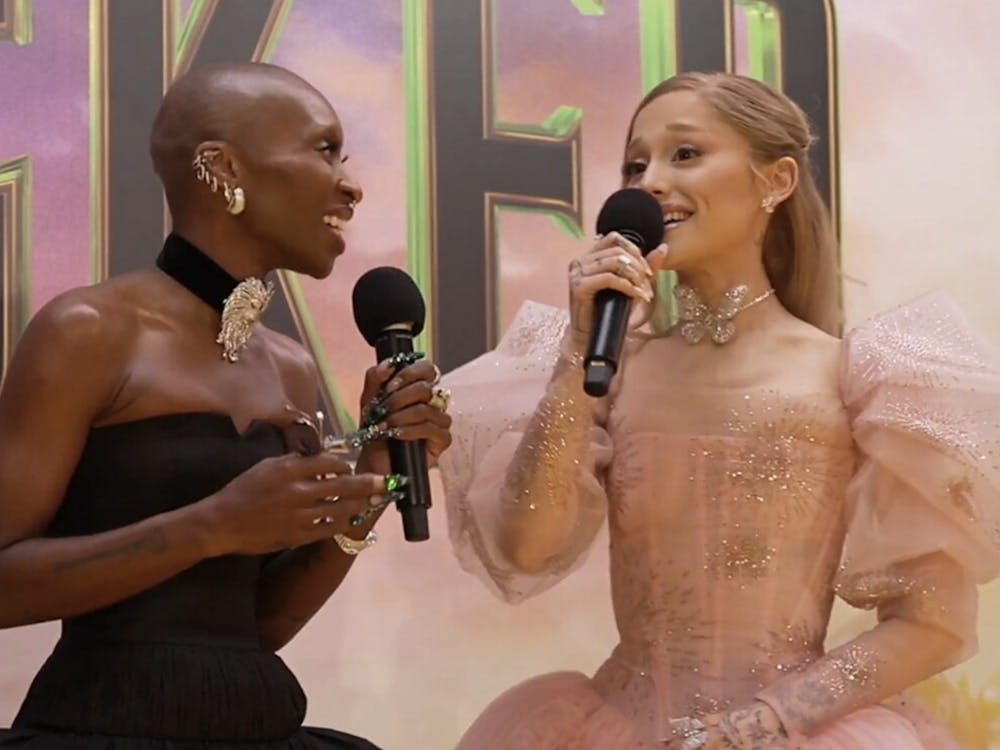The year is 1947, World War II has recently ended and Sherlock Holmes has retired from world-class detective work to the English countryside. However, he faces one gargantuan obstacle: He cannot remember the prickly details of his final case that drove him from his profession.
Director Bill Condon re-imagines Holmes (Sir Ian McKellen) as a once great mind facing Alzheimer’s in his senility.
Holmes struggles to find peace with his last case alongside his strained relations with his underappreciated housekeeper, Ms. Munro (Laura Linney), and her gifted son, Roger (Milo Parker) who take up residence in his house. Holmes’s inquiries and epiphanies lead him into a commentary on human nature that goes beyond empiricism into the myriad abstractions a magnifying glass overlooks.
As previous canon titles of Sherlock novels often suggest the subject matter of their investigations (e.g. “The Hound of The Baskervilles”, “The Sign of The Four,” “The Valley of Death,” etc.) “Mr. Holmes” goes as no exception. While this reinterpretation follows Holmes’s recollection of a bereft mother, Mrs. Kelmot (Hattie Morahan), this recollection is not the center of the story. Instead, the way these memories affect Holmes’s understanding of himself anchors the plot.
In contrast to most Sherlockian works, “Mr. Holmes” treats the ex post facto case regarding Mrs. Kelmot as a passenger to Holmes’s desire for clarity, the driving force of the plot. Given this, viewers should enter the theater prepared for a more meditative plot that marinates more slowly than the conventional detective mystery.
Despite its substance and superb acting, “Mr. Holmes” juggles one too many subplots that unfortunately muddy the pacing. Throughout the film, there are flashbacks to both the case regarding Mrs. Kelmot and a completely separate occasion wherein Sherlock visits Japan. The decision to include both was unnecessary and counterintuitive to communicating the same underlying motif, though perhaps the intention was to leave the audience just as confused as Holmes.
As a deviation from the canon, Holmes’s character portrays a particularly uglier side of a beloved character. McKellen aptly personifies Holmes as an ailing, troubled and initially unpleasant recluse with a self-interested one-track mind, though often at the expense and inconsideration of Mrs. Munro and Roger. The flippant disregard Holmes exhibits toward his widowed housekeeper is a nuanced dynamic the film addresses as a historically accurate criticism to commonplace classicism.
Mrs. Munro and Roger also are neither perfect nor flat. The resulting treatment of the film’s intricate relationships adds a layer to the film worth praising. What “Mr. Holmes” may lack in cohesion, it makes up for in resolve and dynamism. Sherlock is not immovably unpleasant, Mrs. Munro is not chronically downtrodden and Roger’s future isn’t forever bleak; they all come away uniquely transformed.
This film does not fail to return its own answer to the mystery of Mr. Holmes. Something profoundly paradoxical is offered up in Sherlock’s oddly liberating revelation: Not all mysteries leave a tangible trail of breadcrumbs to factual truths men who carry pipes in deerstalker caps can successfully track down. Some mysteries exist so that they may be appreciated as something to infinitely speculate. Surprisingly enough, he finds that maybe this isn’t such a bad thing.





